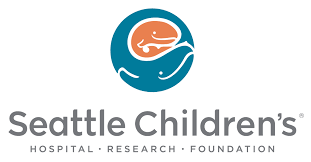
Editor's note: This article was sponsored by Seattle Children's Hospital.
Before COVID-19, LGBTQ youth already experienced higher rates of depression, anxiety and suicide than their non-LGBTQ peers. According to the Centers for Disease Control and Prevention (CDC), LGBTQ youths are three times more likely to seriously contemplate suicide and five times more likely to attempt suicide than heterosexual youths.
Then the pandemic hit, and things got worse. While COVID-related social isolation was difficult for many teens — research shows that lonely adolescents are more likely to be depressed and experience negative health impacts such as obesity and cardiovascular disease in adulthood — LGBTQ youths were hit particularly hard.
According to a new study from the Kaiser Family Foundation that draws on previous research, people identifying as LGBTQ are more likely to experience negative mental health and economic impacts related to the pandemic. Three-fourths of LGBTQ people report negative mental health impacts, including anxiety, worry and stress, as compared to half of those who are not LGBTQ.
Among those reporting a negative mental health impact, LGBTQ respondents are twice as likely to report that the impact is major. They are also more likely to report a job loss during the pandemic. The resulting loss of insurance coverage and economic strain make accessing health care, including mental health care, more challenging for LGBTQ+ youths and young adults.
Sudden social isolation
Last spring’s sudden closure of community centers, youth programs and other supportive spaces cut off access to vital social support for many LGBTQ youths. Research shows that social connectedness helps protect LGBTQ youths from internalized stigma and bullying, and boosts mental and emotional health. Connection to a supportive LGBTQ community reduces anxiety, depression, and suicidal thoughts and behavior for LGBTQ youths, according to a study published in the Journal of Gay & Lesbian Mental Health.
Cut off from supportive social communities, many LGBTQ youths were forced into unsupportive home environments instead. Because just one-third of LGBTQ youths have accepting parents, many were quarantined with adults who rejected their identity, increasing their risk for negative mental health impacts. A study published in Pediatrics found that LGBTQ youths who experience family rejection are eight times more likely to attempt suicide and nearly six times more likely to report high levels of depression.
Ways to Support Your LGBTQ+ Child
- Tell them they’re loved and supported — no matter what. Tell them this often.
- Listen, talk and learn together as your child explores their gender identity and sexuality. It may be helpful to connect with support groups and community organizations (see recommended resources below).
- Stay connected to your child or teen by showing interest in their friends and interests.
- Advocate for your child or teen in school, health-care settings, etc.
- Know the signs of a developing mental health problem and how to get help right away.
Healing health anxiety
While the pandemic increased the need for mental health support for LGBTQ youths, it also made finding support more complex. The worldwide health crisis escalated already rising levels of health anxiety — fear and preoccupation with illness — and kept many people from seeking care, particularly those already uncomfortable in health-care settings. This includes many LGBTQ youths, thanks to well-documented discrimination in health-care settings, according to a 2020 report by The Trevor Project.
This anxiety makes it harder for some LGBTQ youths to develop trust and communicate openly with therapists, doctors and other health-care providers. It also helps explain why many adolescents choose not to disclose their LGBTQ identity to their providers, and this reticence can create a barrier to receiving effective treatment.
Before trusting a provider enough to ask questions, share concerns and accept advice, LGBTQ youths need to feel comfortable and supported. The LGBTQ Community Spotlight report from a group of King County Hospitals for a Healthier Community, a collective of hospitals that includes Seattle Children’s, draws from listening sessions with local youths ages 13–24, along with findings from the state’s Healthy Youth Survey.
The report highlights the importance of inclusive, affirming providers for LGBTQ youth: “A strong message from youth was that they needed to feel safe and develop trusting relationships with their providers before they could comfortably talk with them about their physical, mental and emotional health needs — all of which extend beyond just sexual health,” the report reads.
Don’t assume that every credentialed health-care provider will affirm or support your child’s identity — LGBTQ youths report being misgendered and dismissed by doctors and other health-care professionals, according to The Trevor Project. Seek out providers who use inclusive language, ask about preferred pronouns, and acknowledge the possibility that young patients may be gender-non-conforming, non-binary or transgender.
One bright spot of the COVID-19 era may be the wider availability of virtual care via videoconference, phone, text or chat. An anxious teen who balks at an in-person visit with a therapist might feel more comfortable during a video visit or phone call. Youths can dial in from home or anywhere they feel safe, and get to know and build trust in a provider from afar. The Seattle Children’s Gender Clinic and Washington’s Mental Health Referral Service for Children and Teens offer resources to help families navigate referrals and find inclusive, affirming providers and resources for mental health support.
Recommended resources for families:National organizations:
Regional resources:
|
|
Sponsored by: |












